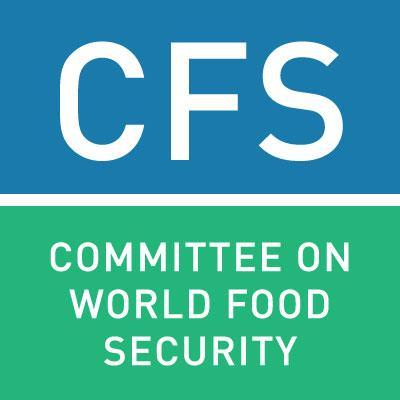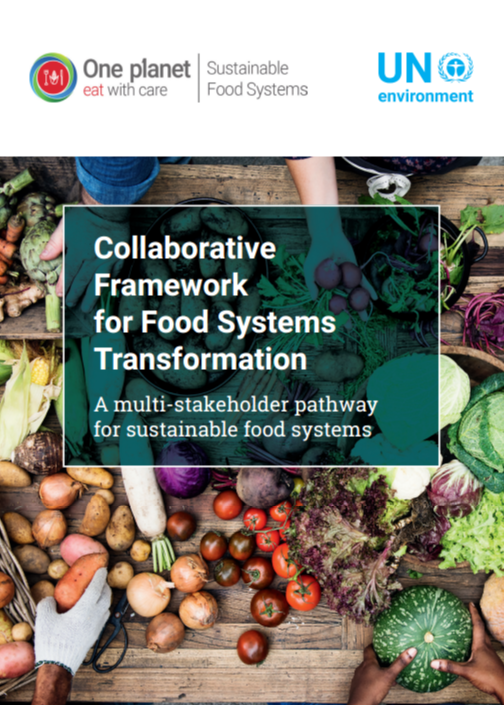Sustainable Food Systems
Adequate nutrition is essential for health and well-being. Every person on this planet has the right to safe, sufficient and nutritious food and to be free from hunger. Yet, undernourished is rampant. Even when food is available and accessible, the nutrient quality of the food is often poor and people’s diets are often inadequate, monotonous and unbalanced. The result is a high prevalence of various forms of malnutrition that co-exist within most countries. Stunting and wasting are underlying causes of death in children under five, micronutrient deficiencies in particular vitamin A, iodine, iron and zinc affect over two billion people, and overweight and obesity have been increasing rapidly worldwide, affecting all population groups.
Aware and concerned about these facts, 164 Members of FAO and WHO attended the Second International Conference on Nutrition (ICN2), co-organized by FAO and WHO, in Rome, in November 2014. They were joined by 164 civil society and private sector organizations as well as other UN and intergovernmental organizations.
According to the High Level Panel of Experts on Food Security and Nutrition, a food system “gathers all the elements (environment, people, inputs, processes, infrastructures, instructions, etc.) and activities that relate to the production, processing, distribution, preparation and consumption of food, and the outputs of these activities, including socio-economic and environmental outcomes.
At the Second International Conference on Nutrition (ICN2), it was universally acknowledged that current food systems are being increasingly challenged to provide adequate, safe, diversified and nutritious food for all that contribute to healthy diets. The Conference adopted the Rome Declaration on Nutrition and its Framework for Action, committing to “enhance sustainable food systems by developing coherent public policies from production to consumption across relevant sectors to provide year-round access to food that meets people’s nutrition needs and promote safe and diversified healthy diet.”
One year later, in September 2015, at the historical global summit, the Sustainable Development Goals (SDGs) were adopted to guide global development through 2030 while ensuring that no one would be left behind. The SDG Goal “to end hunger, achieve food security and improved nutrition, and promote sustainable agriculture” as well as many other SDG goals reiterate and reinforce the commitments made at ICN2. Further building momentum for nutrition, the Decade of Action on Nutrition (2016 to 2025) was proclaimed by the United Nations General Assembly in April 2016, following the recommendation of the ICN2. Its Action Areas focuses on food systems for healthy, sustainable diets. Find out more about the Nutrition Decade here.
The Decade of Action creates an enabling political environment for turning commitments made into action but countries need further technical support in order to do that. FAO and WHO propose to hold an International Symposium on 1-2 December, 2016 to focus mainly on illustrating solutions to implement food systems related ICN2 Framework for Action recommendations. Participants will include government officials with policy-making and programme-design mandates coming from Health and Agriculture ministries.
Latest content relevant to Sustainable Food Systems

Food Systems and Diets Handbook
19/12/2019 - Published by the Global Panel on Agriculture and Food Systems for Nutrition, this handbook offers a summary of evidence and concrete policy recommendations for countries to provide healthy diets [...]

IFPRI Seminar - Food System Transformations: National Actions in a Globalized World
14/11/2019 - Thursday, November 14, 2019 12:15 pm to 1:45 pm (EDT) IFPRI, Washington, D.C. Food systems in developing countries are undergoing a rapid transformation shaped by global and regional [...]

Sustainable healthy diets – Guiding principles
16/10/2019 - In 2014, the FAO/WHO Second International Conference on Nutrition (ICN2) acknowledged that: “current food systems are being increasingly challenged to provide adequate, safe, diversified and [...]

Healthy Diets Week Twitter chat
10/10/2019 - On Thursday, 10 October from 2-3pm (BST), IIED will host a Twitter chat to stimulate dialogue and debate around healthy diets and the need to transform our food systems to tackle the worsening [...]

Food Systems for Children and Adolescents: Working Together to Secure Nutritious Diets
30/07/2019 - Food systems are essential to delivering healthy, affordable and sustainable diets, but the nutritional needs of children and adolescents (both of present and future generations) are often not [...]

CFS Regional Consultations on Food Systems and Nutrition
16/07/2019 - The Committee on World Food Security (CFS) at its 45th Session in 2018 endorsed a policy process which is expected to result in Voluntary Guidelines on Food Systems and Nutrition. The preparation of [...]

Creating a Sustainable Food Future
15/07/2019 - By 2050, nearly 10 billion people will live on the planet. Can we produce enough food sustainably? World Resources Report: Creating a Sustainable Food Future shows that it is possible [...]

Online consultation - CFS policy process on the development of the Voluntary Guidelines on Food Systems and Nutrition
01/07/2019 - Open until: 02.08.2019 The Committee on World Food Security (CFS) and the FSN Forum are pleased to invite you to take part in the online consultation CFS policy process on the [...]

Global Launch Webinar - Collaborative Framework for Food Systems Transformation
18/06/2019 - 18 June, from 16:00 to 17:00 (CET) UN Environment, in collaboration with the One Planet Network Sustainable Food Systems Programme, is launching a Collaborative Framework for Food Systems [...]

Collaborative Framework for Food Systems Transformation
18/06/2019 - The Collaborative Framework for Food Systems Transformation explains how governments and stakeholders, at national or local levels, can apply a food systems approach to policymaking and [...]





